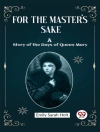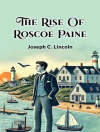In ‘Tracy Park, ‘ Mary Jane Holmes crafts a compelling narrative that intricately weaves themes of love, social class, and the quest for personal identity in a rapidly changing America. Set against the backdrop of mid-19th century New England, Holmes employs a straightforward yet evocative literary style that resonates with the sentimentalism popular during her time. The novel features rich character development and an exploration of moral dilemmas faced by its protagonists, thereby situating it within the broader context of American romantic fiction while also challenging conventional social norms. Mary Jane Holmes, a prominent figure in 19th-century American literature, drew upon her own experiences and observations of societal dynamics in her writing. Her nuanced understanding of gender roles and class structure is reflected in the relational intricacies of her characters. Having faced the constraints of her own era, Holmes became an advocate for women’s rights and education, themes that echo throughout the narrative, showcasing her commitment to addressing social issues through her literary work. ‘Tracy Park’ is a must-read for those interested in the evolution of American literature and the complex interplay of personal and societal challenges. Holmes’ insightful depiction of her characters provides readers with profound reflections on their own lives. This engaging novel invites readers to ponder the influences of environment and societal expectations, making it a timeless addition to any literary collection.
About the author
Mary Jane Holmes (April 5, 1825 – October 6, 1907) was a prolific American author, best known for her popular novels and domestic stories. Born in Brookfield, Massachusetts, Holmes wrote more than 39 novels and numerous short stories, most of which were published between the mid-19th and early 20th centuries. Her work often addressed the lives and struggles of women during her time, and through her writing, she gained a reputation for her vivid storytelling, with a particular knack for realistic dialogue and creating true-to-life characters. Among her many works, ‘Tracy Park’ stands out as an exemplary piece that captures the nuances of family dynamics and class conflicts. Holmes’s literary style has been characterized by its accessibility and emotional engagement, topics that spoke to a substantial audience, particularly middle and upper-middle-class women. Her novels were commercially successful in their time, making her one of the best-selling authors of her day. Despite the lack of lasting critical acclaim within literary circles, Holmes’s books were celebrated by readers for their sentimentality and moral overtones. While Holmes’s prominence has waned in comparison to some of her contemporaries, her work nonetheless offers meaningful insight into 19th-century American culture, particularly regarding domestic life and gender roles. Her books are now often considered valuable documents for understanding the socio-cultural context of the period in which she wrote (Foster, 1984). Her contribution to American literature, especially as a female author who gained enormous public favor, retains historical significance.












